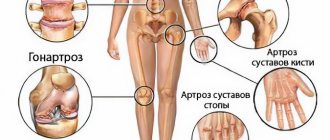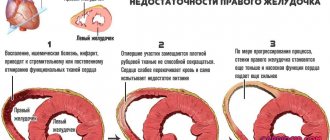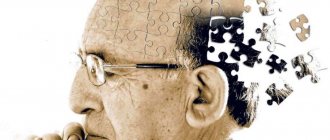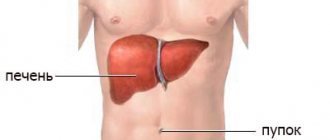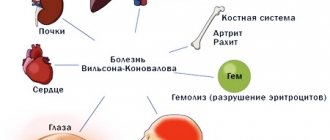In old age, negative changes occur in the body of every person, including those affecting the brain. Among them is senile dementia, or dementia.
The disease is a serious mental disorder associated with the loss of previously acquired knowledge, skills, and practical skills and the difficulty or impossibility of acquiring new ones.
The disease is organic in nature and develops slowly, which makes diagnosis much more difficult. Symptoms of senile dementia are varied and depend on the stage of the disease and the location of brain damage.
In this article we will talk about senile dementia (senile dementia): symptoms and first signs of the disease at different stages of development, as well as how marasmus manifests itself in men and women.
Signs of the disease
At the onset of dementia, the clinical manifestations of dementia are insignificantly expressed. Patients' memory weakens. They become forgetful and have poor time management. Gradually the patient ceases to navigate in space. He loses the ability to learn new things and engage in intellectual activity. A person's behavior changes for the worse. The personality degradation of a loved one causes severe stress for relatives.
As the disease progresses, patients with dementia forget their first and last names. They get lost on their street and may go to another area of the city without understanding where or why. People become apathetic and sometimes show increased aggression. They stop taking care of themselves. Patients with advanced dementia may feel hungry all the time. A person often tells the same story several times.
At the final stage of the disease, sick people become completely dependent on the people around them. Patients suffering from dementia forget the names of relatives, relatives, and events. They refuse to brush their teeth, wash their face, or take a shower. People with dementia become unable to do anything. They wander around without a goal, ask the same question and immediately forget that they have already asked about it.
This behavior of a person causes stress in people close to him. Therefore, psychologists at the Yusupov Hospital teach the patient’s family how to adequately treat a person with dementia. They explain how to behave, how to care for a person with senile dementia, and help patients’ families adapt to life next to the patient.
Prevention of dementia
When a person approaches 50 years of age, it is useful to engage in dementia prevention. The recommendations below will help you not only reduce your risk of developing dementia, but also help you stay healthy, happy, and vibrant as you age.
- Maintain communication with pleasant people. Communicate with loved ones, meet with friends, participate in clubs of interest, etc. Do not be alone for a long time.
- Move. Any regular activity that you like and suits will be a plus. It is useful to walk in the fresh air, go swimming, ride a bike.
- Eat properly. Avoid any junk food. Eat according to the schedule several times a day in small portions. A Mediterranean diet is recommended. It is useful to include vitamins in your diet.
- Never stop learning new things and training your memory. Develop your brain and engage in interesting mental activities.
- Give up all bad habits.
- Keep calm. Relaxation, meditation, yoga, psychotherapy will help maintain mental and physical health for a long time.
- Get treatment. Cure in a timely manner from emerging diseases, especially infectious and vascular ones.
When and which doctor should I contact?
Relatives of older people should be wary of the following signs of dementia:
- disorders of cognitive functions, which include disorders of memory (both short-term and long-term), attention and disorders associated with higher functions (aphasia, apraxia and agnosia);
- disturbances of orientation in time, place and within one’s own personality;
- behavioral disorders - the appearance of anxiety, fussiness, greed, selfishness, suspicion, conflict, resentment;
- thinking disorders - the patient loses the ability to think logically, solve problems and abstract;
- a decrease in critical attitude towards oneself and the environment;
- emotional disorders - the appearance of irritability, aggression, anger, tearfulness, anxiety;
- Perception disorders - the appearance of hallucinations and illusions.
Complete restoration of brain cells is impossible, but early diagnosis of dementia in older people will prevent the situation from worsening. Therefore, a timely visit to the doctor will allow you to start treatment as early as possible. If the listed signs of the disease are detected, you need to contact a therapist, who will give a referral to a highly specialized specialist - a neurologist, psychiatrist, geriatrician (doctor specializing in diseases of the elderly).
To make a diagnosis, the doctor collects an anamnesis of the disease, performs an examination and prescribes a tomography - the study allows one to recognize atrophic processes in the brain. The patient also needs to undergo a series of tests to assess cognitive functions (memory status, spatial orientation, reading, counting, attention, recognition, the presence of hallucinations, the ability to plan and organize).
Legal aspects
A diagnosis of dementia raises questions about the patient’s legal capacity. People with mild dementia are considered competent, that is, those who can reason rationally and manage their property. In this case, a guardian is appointed who has the right to dispose of the patient’s property.
But as the disease progresses, the person loses mental clarity and capacity. Its degree is established by a special commission, the main information for which is diagnostic data and information from the attending physician. The patient also needs to undergo a psychiatric examination and undergo diagnostic tests.
The status of incapacity and disability implies payments from the state in the form of a social pension.
Therefore, the process is clearly regulated by legal norms and to obtain it it is necessary to go through “all the circles of bureaucratic hell”: collect certificates, conduct tests, and then confirm this status every year when passing a medical and social examination. The procedure for declaring a person incompetent
| Procedure | Order |
| Collection of documents |
|
| Reasons | A mental disorder as a result of which a citizen cannot control or understand his actions |
| As admitted | Through the court |
| Consequences | Appointment of a guardian who manages the person’s property and is responsible for it |
Legal aspects that need to be addressed if a diagnosis of dementia is made:
- put in order agreements on insurance, loans, leases, etc.;
- make a choice of the person whom the patient would like to see as a guardian, notarize this desire in the form of a power of attorney;
- write or update an already written will, have it certified by a notary;
- put your bank accounts in order; you can set up online banking to pay utility bills on time.
If an older person is diagnosed with dementia, there is a lot that needs to be done. To ensure a decent standard of living for a loved one, you need to make every effort and finance. Doctors, psychologists, lawyers, social workers and, of course, relatives will help you cope with dementia. The main thing is not to despair, but to try to do everything possible to make the last years of a person’s life as comfortable as possible.
Causes of symptoms
Symptoms of dementia can develop due to exposure to various factors that damage brain neurons: traumatic brain injury, infectious diseases of the central nervous system, intoxication.
Dementia is a common symptom of the consequences of a stroke, Alzheimer's disease or Parkinsonism. Secondary brain damage develops in patients with pathology of cerebral vessels. Dementia can develop in patients with AIDS, meningitis, viral encephalitis or neurosyphilis. The cause of dementia can be chronic renal and liver failure, complications of hemodialysis, pathology of the endocrine system, and autoimmune diseases. Dementia often develops due to the influence of several precipitating factors.
Dementia usually develops in older people, but the first signs of the disease can appear at an early age. In this case, the cause of the development of dementia may be a hereditary predisposition, brain space-occupying lesions, arterial hypertension, alcoholism, or drug use. Symptoms of dementia occur in people with low social status.
Make an appointment
Tendency to run away from home
Another common problem that loved ones of a person suffering from senile dementia often face is the tendency to wander and run away from home. It would seem that he has everything for a comfortable life: comfortable housing, care and attention from relatives, but the patient continues to run away, and his relatives are lost in search.
If a person has dementia, how can those around them live, and how can they cope with constant “surprises” on their part? First of all, you need to talk to your neighbors and sellers from nearby stores so that they immediately warn the relatives of an elderly person if they see him on the street alone. You need to give them phone numbers that you can call and tell them where the patient is.
The patient himself needs to put on a bracelet on his hand, which will also contain the contact information of his relatives. The ideal option is a smart watch or phone with the function of tracking the subscriber’s movement.
Features of the clinical picture of senile dementia
Senile dementia develops in older people. The changes that occur in the cerebral cortex are irreversible. In sick people, all areas of the cognitive psyche are impaired:
- Memory;
- Attention;
- Thinking;
- Speech.
They cannot be restored. Neurologists distinguish 3 stages of senile dementia: mild, moderate and severe. Mild senile dementia in older people is manifested by a lack of interest in the people, events and things around them. They do not want to communicate for a long time and may quit their job for no apparent reason. At the same time, people cope with all household chores on their own and realize the need for treatment.
In the presence of moderate dementia, the patient's critical perception of his illness decreases. Severe intellectual impairments appear. A person has difficulties in everyday life. It becomes difficult for him to open the lock, turn on the kitchen stove, or change the TV channel.
Severe dementia is manifested by senile dementia and complete collapse of personality. The patient becomes unable to do basic things: eat, brush his teeth, get dressed. He plunges into complete apathy, does not feel hunger or thirst. Patients develop speech and movement disorders. Neurologists at the Yusupov Hospital are making every effort to stop the progression of personality degradation.
Exercises to train your brain
- Forming words in your mind in reverse (cat - current, needle - algi). You need to start with short words of 3 letters, then the number of letters increases.
- Making new words from one by changing letters. For example, from the word “bottle”: bull, rear, bun, smile...
- Finish the saying. The point is to complete the second part of a famous proverb, riddle or saying. For example, “To be afraid of wolves - ...”, “Forty clothes - ...”, “Without difficulty - ...”.
- Drawing geometric shapes in mirror reflection. You need to start with simple triangles and rhombuses, then the shapes can be more complicated.
- The fourth one is extra. You need to find the odd one out among the four words and explain why. For example, owl, wolf, crow, black grouse. (A wolf is not a bird, it is superfluous.)
- Children's games. For example, you can play an analogue of the game: “I know 5 boys’ names.” This way you can remember the names of vegetables, kitchen utensils, etc. There may not be 5, but 7 or more.
Symptoms of vascular dementia
Most often, vascular dementia develops due to the death of brain neurons after a cerebral infarction, hemorrhage, due to cerebral atherosclerosis. Symptoms of the disease largely depend on which area of the brain the vascular accident has developed.
Vascular dementia develops in the presence of the following risk factors:
- Arterial hypertension;
- Diabetes mellitus;
- Sedentary lifestyle;
- Tendency to form blood clots;
- High lipid levels;
- Smoking;
- Excess body weight.
Unlike senile dementia, in the vascular form of the disease memory is not so critically impaired. Patients experience neurological symptoms:
- Movement disorders;
- Swallowing disorder;
- Pseudobulbar syndrome.
Emotional disorders are typical: depression, apathy, hallucinations, frequent mood swings. Some patients have problems with the function of the pelvic organs (control of bowel movements and urination is impaired). They become sloppy.
Not old age, but illness
According to statistics, approximately 80% of people over 60 years of age have some form of cognitive impairment. The older the person, the higher the risk. The statistics are confirmed by numerous studies, in particular those conducted by employees of the Russian Gerontological Research and Clinical Center among elderly visitors to city clinics. 8% of them had severe impairments (dementia), and 46% had moderate cognitive impairment. Because the problem is so widespread, many people consider it normal. Like, old age is not a joy, of course. And that’s why they don’t turn to doctors until, alas, they lose the opportunity not only to work, but even to care for themselves. However, neurologists are confident: old age and dementia are not synonymous, and it is possible to live to an old age with sound mind and strong memory. But at the first alarming symptoms, you should immediately contact a neurologist or geriatrician and begin treatment. This will preserve a person’s independence for 10 years, whereas without treatment he will become severely disabled in 3 years.
Click to enlarge
Symptoms at different stages of disease development
In the clinical course of dementia, neurologists distinguish several stages. Usually healthy people are adequate, take care of themselves, and have the skills to perform various actions. When the function of the cerebral cortex is impaired, these functions are partially or completely lost. At the onset of the disease, a person’s mood deteriorates, his horizons narrow, and interest in life disappears. He experiences a loss of strength, apathy, becomes aggressive, irritable, and lack of initiative.
In the second stage of dementia, the symptoms of dementia become more pronounced, and the person’s capabilities are reduced. He forgets recent events and the names of people close to him, and has difficulty communicating. At this stage of the disease, a person is not able to take care of himself fully. He ceases to navigate in time and space, so he needs the help of loved ones.
In the final stage of dementia, the sick person becomes almost completely dependent on other people. Symptoms of dementia become more severe. The patient develops complete disorientation. He loses the ability to move independently. Due to the progression of memory impairment, a person ceases to recognize relatives and acquaintances.
Changes in everyday life and relationships with relatives
Relatives of a person diagnosed with dementia should be prepared for the following changes in personality and behavior:
- a decrease in intellectual abilities, as a result of which the style of communication with family changes;
- loss of short-term memory, a person forgets where he put his things, accuses others of stealing, does everything to provoke others;
- refusal to eat during dementia forces unpleasant procedures of force-feeding or intravenous administration of nutrients, which negatively affects family relationships;
- loss of long-term memory, stops recognizing friends and relatives, forgets events in life, does the same actions over and over again;
- changes in character, gross personality changes are noted, a radical change in preferences, dementia makes even the most gentle people aggressive.
All this makes relationships with the patient much more difficult. Relatives of people with dementia note that they become like little children: capricious, selfish, unable to take care of themselves, and doing stupid things. In later stages, people with dementia do things that are incomprehensible to relatives and become distant and alien.
Symptomatic therapy
Currently, doctors do not know any medicines that could be used to cure a patient of dementia. Drug therapy is aimed at reducing the severity of symptoms of the disease and inhibiting the progression of dementia. Neurologists at the Yusupov Hospital adhere to the following priority areas for providing specialized medical care to patients with dementia:
- Identification of early symptoms of dementia at the preclinical stage of the disease, allowing for effective specific therapy to begin as early as possible;
- Determination of symptoms of mental health disorders, correction of behavioral reactions;
- Improving the patient’s activity, physical health and mental abilities;
- Providing complete information about the features of the clinical picture of various types of dementia to people who care for the patient.
Neurologists begin drug therapy for dementia by informing the patient about the disease and its symptoms. Doctors at the neurology clinic individually select for each patient pharmacological agents that are most effective for a specific clinical case of the disease. Complex therapy is carried out aimed at increasing activity, optimizing cognitive abilities, and improving the patient’s physical health.
At the same time, doctors at the neurology clinic identify and treat diseases that cause dementia, provide caregivers with information about the patient’s health status, and provide long-term psychological support. Doctors also give recommendations on adapting the environment for the patient, develop instructions for daily care, and adherence to the daily routine. Rehabilitation clinic specialists create a set of rehabilitation measures.
Make an appointment
Arrangement of living space
It is necessary to think as much as possible about how to arrange the patient’s home so that it is comfortable and, most importantly, safe. It is important to try to remove electrical and gas appliances, matches, and lighters from the access area. When leaving home, it is recommended to turn off the gas valve, as people with dementia have a habit of lighting the stove and leaving it, simply forgetting about it. You shouldn’t even try to ask why they are doing this - patients will deny everything, there will be deep resentment, tears, and possible hysterics.
At the initial stage of the disease, a person simply becomes forgetful, inattentive, and clumsy. As the disease progresses, he can no longer live alone: someone close to him will have to experience for himself how to live with a person who has dementia. Piercing and cutting objects pose a danger to the patient. It is better to even choose dishes made of plastic, rather than from materials that can break into fragments. Knives, forks, scissors, household chemicals and medicines - all this needs to be removed from reach. Furniture should be arranged so that the patient does not risk getting hurt on sharp corners; it is advisable to provide room for movement. There should be anti-slip mats in the bathroom and toilet.
Forecast
The prognosis for recovery is unfavorable. Reducing the severity of symptoms of dementia is possible with early detection of dementia, timely initiation and adequacy of therapy. The patient's life expectancy and quality of life are influenced by the following factors:
- Initial level of intelligence;
- Physical state;
- Presence of concomitant diseases;
- Burdened heredity;
- Having bad habits;
- Quality of help from relatives.
Typically, the life expectancy of people with dementia ranges from 7 to 10 years. Patients with dementia with Lewy bodies live 5-7 years. This is due to the fact that the disease begins with subtle manifestations, and cognitive impairment progresses quite quickly. People with dementia sooner or later become disabled. About ten years pass from the appearance of the first signs of the disease to the development of senile insanity. The earlier treatment is started, the more optimistic the prognosis.
The following signs that bring death closer have an adverse effect on your health:
- recurrent pneumonia and infections;
- loss of short-term and long-term memory;
- fecal and urinary incontinence;
- movement and coordination disorders;
- loss of speech and facial expressions;
- disturbances in the processes of chewing and swallowing, resulting in exhaustion of the body;
- loss of the ability to sit independently and hold up your head.
A significant problem of the terminal stage is that patients, due to their serious condition, cannot inform caring staff or relatives about their needs.
Diagnostics
Senile dementia (symptoms and signs in women are taken into account when diagnosing) is not so easy to identify, especially in the early stages. Various methods are used for examination.
| Method | Description |
| General inspection | The doctor examines the skin, mucous membranes, and notes visible accompanying disorders |
| Clinical researches | A blood and urine sample is taken to identify abnormalities in the internal organs |
| Special tests to detect deviations | The specialist asks the patient to talk about recent events, repeat a few words and solve the simplest problems |
| Survey of relatives | Interviewing the patient’s relatives allows us to complement the clinical picture and clarify the nuances of behavior |
| MRI | The technique helps to see the localization of the lesion in the images, which facilitates diagnosis |
Sometimes a DNA test of the patient is required, which helps confirm or exclude a hereditary predisposition. The method is used when symptoms of genetic diseases are present.
Causes of death in dementia
The causes of 2/3 of deaths in dementia are pneumonia, in which inflamed lungs cannot provide the body with enough oxygen. Less common causes of death are strokes, heart attacks and diseases of the cardiovascular system.
Against the background of pneumonia and infection, patients may develop delirium, in which a person becomes restless and experiences hallucinations. His thoughts and ideas become delusional, the person increasingly becomes drowsy and then withdraws into himself.
Prolonged immobility causes bedsores, in place of which wounds form, causing incredible pain and suffering. Also, with insufficient mobility, thrombophilia develops.
The patient's condition is also affected by antipsychotic drugs, most of which have severe side effects. When taking them, constipation occurs, leading to intestinal obstruction. Ulcers may form in the mouth, causing pain. All this can also be a cause of death in dementia.
Treatment
For mild manifestations, effective and proven remedies are prescribed, for example, Galantamil. Courses of antipsychotic medications will be required. Patients are also prescribed sleeping pills and sedatives.
| Forms | Drugs |
| Lightweight | Estelon |
| Donezin | |
| Rivastigmine | |
| Heavy | Antidepressants |
| Neuroletics | |
| Nootropics |
How to prevent death
Providing quality care for a sick person significantly reduces the risk of death. Lethal outcome can be prevented by:
- massage and moderate physical activity, which helps avoid the appearance of bedsores and congestion in the body;
- skin and wound care;
- oral care;
- adequate nutrition - eating enough food.
When caring for patients with dementia, palliative care plays an important role, the essence of which is to reduce suffering and relieve pain.
In the final stages of the disease, patients need careful care, which relatives are unable to provide due to insufficient time and skills. Therefore, the right decision would be to place the patient in a boarding house or medical facility that specializes in providing care to patients with dementia.
At the Neurology Clinic of the Yusupov Hospital, doctors, paramedics and junior medical staff have extensive experience in treating dementia and providing palliative care, including at the terminal stage of the disease. You can make an appointment with a neurologist, psychiatrist or other specialist at the Yusupov Hospital by calling. During a telephone conversation with the coordinating doctor, you can find out all the information you need, including the cost of treatment and availability of hospital beds.
How to alleviate the suffering of a patient without going crazy yourself
Caring for a person with dementia is a physically, financially and psychologically challenging process. Watching a loved one's mind fade away makes this process unbearable.
To minimize this negative impact, it is recommended to do the following:
- Treats the patient condescendingly. It is important to remember that this illness leaves an imprint on his consciousness and character, and his words and actions should not be taken to heart.
- Talk to the person at a slow pace, do it without aggression. People with dementia tend to forget the meaning of words, take longer to process what they hear, and can be emotionally hurt by a harsh tone.
- Question formulation. It should sound simple and clear, preferably the answer to it should be “yes” or “no”.
- Events from the patient’s life are gradually forgotten; he remembers more ancient events better. When talking with him, it is more effective to appeal to memories than to recent events. Talking about long-standing events has a calming effect on such a person.
- Confront your own feelings of guilt and refrain from expressing negative emotions in front of the patient. You should not try to overcome the situation on your own; you should accept help from others and share your experiences with loved ones.
- Remember that besides the illness of a loved one, there is another life. In order not to burn out emotionally or become depressed, it is recommended to continue doing work, hobbies, and personal life.
A diagnosis of senile dementia forces one to take many steps to combat the disease and maintain the same family relationships. To survive this struggle, it is important not to place this burden on one person, as is often the case.
Do not neglect psychological help. It is needed both by the patient with dementia and his relatives. It's hard to constantly be around someone who is slowly losing their mind. This leaves an imprint on the psyche of any person; if you do not find a way out for negative emotions, you can find the emergence of problems in the family and personal relationships.
Dementia in men - how to help your husband or loved one
What to do if your husband has dementia? As a rule, wives notice the first signs. Because in old age, the children have long since moved away, but the spouse remains nearby.
Suspecting something was wrong:
- Contact the Leto clinic. Our specialists will assess the patient’s condition and develop the most effective tactics for further action.
- Go to your appointment already prepared - with examinations performed (MRI of the brain or X-ray of cerebral vessels).
- Decide to live together. At least starting from the second stage of the disease, this cannot be avoided.
- Closely monitor your medication intake. This will delay the onset of the next stage of the disease as much as possible.
- At least once every two years, be sure to visit the specialist you contacted to correct your treatment. This disease progresses, and the doses of the devices taken need to be increased.
- Don’t forget to give your man some easy tasks: sweep the floor, wash the dishes, dress or undress yourself, wash your face, brush your teeth. Sing old songs with him, turn on your favorite music, do some modeling or putting together puzzles.
- At all stages, provide emotional support and encouragement.
- Be prepared for the upcoming changes in life.
- Do not allow the use of a personal car, recommend public transport, take care of a personal driver.
- Come together or bring your husband to special support groups.
- Maintain hydration and remind your spouse about water.
- Monitor his overall physical health.
- Learn more about community support resources.
- If you have difficulties with simple household chores, explain slowly and show how to do it.
- Leave things in their original places.
- Read one book, watch a movie, and then discuss.
- If necessary, put reminders on sticky notes in capital letters.
- You're kidding! Humor prolongs and improves life.
Cost of services
| CONSULTATIONS OF SPECIALISTS | |
| Initial consultation with a psychiatrist (60 min.) | 3,500 rub. |
| Repeated consultation | 2,500 rub. |
| Consultation with a psychiatrist-narcologist (60 min.) | 3,500 rub. |
| Consultation with a psychologist | 2,500 rub. |
| Consultation with Gromova E.V. (50 minutes) | 12,000 rub. |
| PSYCHOTHERAPY | |
| Psychotherapy (session) | 6,500 rub. |
| Psychotherapy (5 sessions) | 25,000 rub. |
| Psychotherapy (10 sessions) | 48,000 rub. |
| Group psychotherapy (3-7 people) | 3,500 rub. |
| Hypnosis (1 session) | 10,000 rub. |
| Hypnotherapy course (5 sessions) | 45,000 rub. |
| Psychotherapy session with E.V. Gromova (50 minutes) | 12,000 rub. |
| TREATMENT IN A HOSPITAL | |
| Ward for 4 persons | 8,500 rub./day |
| Ward for 3 persons | 9,500 rub./day |
| Ward for 2 persons | 11,500 rub./day |
| Ward for 2 persons Comfort | 12,500 rub./day |
| Ward 1 bed VIP | 16,500 rub./day |
This list does not contain all prices for services provided by our clinic. The full price list can be found on the “Prices” , or by calling: 8(969)060-93-93. Initial consultation is FREE!
